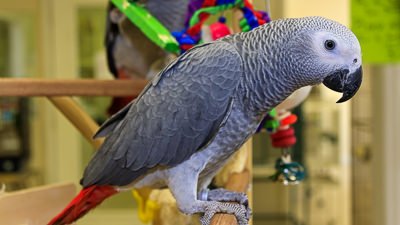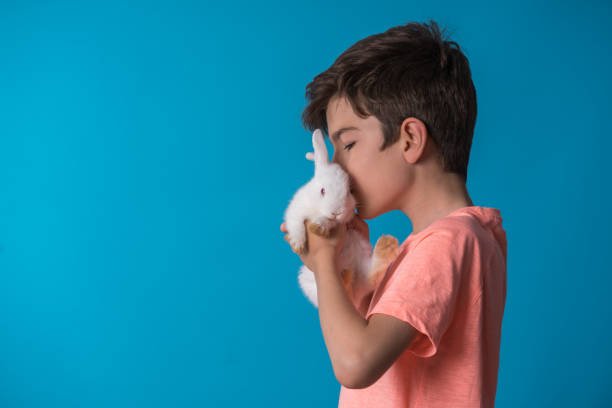Table of Contents
ToggleIntroduction: Are Dachshunds Hypoallergenic Dog Breeds
This is mainly because hypoallergenic dog breeds are known to produce little amounts of dander, fur and other things that may cause allergic reactions. Some would like to think that these dogs are hypoallergenic or do not cause this situation to happen.
However, no dog is 100% allergy-free. From dander, saliva and urine of an animal are considered as allergens. Some breeds shed less hair, which would mean that there would be little spreading of allergens in the rooms for such breeds.
Dachshunds are rather popular, do they belong to hypoallergenic breeds? Knowledge about these characteristics can serve to find out if they are suitable for use by allergy sufferers. Now, let’s discuss on the subject of whether Dachshunds are hypoallergenic or not.
What Causes Dog Allergies?
This is because all of them originate from proteins in dander, saliva, and urine in dogs. These allergic agents float in the air and attach to furniture, clothes and carpet among other surfaces. People with sensitive skin may develop rashes, sneeze or have problems with their breathing.
High dander producing dogs need to be eliminated as they can greatly affect the health of the heads of households, especially those with an allergic sensitivity. It is also possible to eliminate it by washing because hair is also a means of shedding dander. When selecting a breed, it is very important for those that have allergies. So, how do Dachshunds compare?
Do Dachshunds Shed a Lot?
It will be important to note that Dachshunds are moderate shedders; therefore, they discharge some dander to the vicinity. The Core shedding frequency is dependent with the type of coat the cats possess. The smooth haired Dachshund requires the least grooming when it comes to shedding than those with the long haired.
Wire-haired Dachshunds are coated which is quite fluffy and bulky to trap the loose hairs. Regular grooming helps control shedding. Nevertheless, every loss of hair is capable of stimulating an allergic reaction in those who have a sensitive skin. In case you have an allergy, low shedding breed is preferable since its hair will not be falling frequently.
Dachshund Coat Types and Allergens
There are three types of coat of Dachshunds, these are smooth coated, long coated and wire coated. Some of the species of interest that we have are smooth coat which does not need much attention when it comes to grooming but still sheds. Long-haired Dachshunds will require grooming because the length of their hair will result in shedding.
Another variety of this type of coats is wire-haired Dachshunds, which include dense coat and trap dander that causes skin conditions. The fact is that having stripped their bodies of allergens, dackel’s don’t qualify as hypoallergenic dogs. And even if the cat is bathed daily and the fur brushed, the material will still be floating in the air in the form of dander as well as saliva which causes allergies.
Are Dachshunds Hypoallergenic?
Dachshunds are not hypoallergenic. They drop fur and have dander; their saliva also emits allergens. In fact, some people with mild allergy problems may be able to handle them better than those who shed a lot. However, those people who have severe allergies of some sort may have a hard time with it. Daily brushing, washing laundry and use of purifiers may also assist in decrease of allergens.
If you are an allergic person, it will be wise to engage with a Dachshund for some time before making any decisions. However, one must not take the test and buy one on the same day for this will show the reaction of your body to the test.
How to Manage Allergies With a Dachshund
Of course, allergy refers to the inability of the body to tolerate certain substances and the management of this condition entails the avoidance of such substances. Louk for the shedding of skin, particularly in hot seasons, and bathing the animal regularly is also good ways of reducing dander in the Dachshund.
It is best to bathe at least once a month in order to reduce the amount of hair that falls out and decrease the level of allergens. The general cleaning of the compound also removes hair from specific areas on the compound. HEPA air purifiers are effective in the conditioning of air quality. The following are some ways through which you can minimize allergens when handling the animal.
Washing your hands after handling the dog. Allergy medications can also help. If you are considerably sensitive, it is advisable that you visit an allergist for treatment. Well, the following are some of the measures which when put in place, will make the process of living with a Dachshund much easier:
Best Grooming Practices for Allergy Sufferers
Grooming is exceptionally important when it comes to controlling allergen. Your Dachshund too developed loose hair; therefore, once in a while, you should comb it to minimize the hairs that fall. Bathe them and wash their coat gently using a damp cloth to also get rid of dander.
When bathing the Birman, it is recommended to use only products that are hypoallergenic for the dog. This will avoid formation of scratches on him from when he will be transferring allergens to other parts of the body.
One common disease that could be made worse by these symptoms is an ear infection and cleaning it will help to prevent such a situation. Grooming is helpful in the reduction of allergens in your home to make it more comfortable for the elderly with allergies.
Reducing Allergens in Your Home
Cleanliness helps in the management of allergy since the environment within the home affects the immune response most positively. Clean often with a HEPA filter vacuum cleaner commonly used in the units bearing as the number or name 58009 and 58008.
However only bathe your pet’s bedding and toys frequently to ensure that it subtracts all the allergens. In order to minimize and prevent the spread of dander, do not allow the dog on the furniture. Air purifiers should be used because they help in filtering out allergens that are circulating in the air. Carpets should be avoided for have opted for hardwood floors since they don’t accumulate dander.
Some of the measures that can be taken to eradicate allergens include: Washing of blankets and cushion frequently. All the given steps suggest the approach to make necessary changes that would improve the condition of people, who suffer from allergy.
Are Miniature Dachshunds Better for Allergies?
The miniature Dachshunds are smaller and hence, cause fewer allergic reactions as compared to standard Dachshunds. However, they are not hypoallergenic. Though they shed very little, it should be noted that their dander is also present in some measure.
However, if you have mild allergy to dogs, a miniature Dachshund may not be as worse as other Dachshund varieties. This means that care should be taken to continue with a regular grooming routine and proper home cleaning. However, all Dachshunds produce allergens and this is something that the allergy sufferers have to consider even with babies.
Hypoallergenic Dog Breeds to Consider
If you really want a hypoallergenic breed, it is advisable to look at other breeds. The amount of hair shed is negligent in Poodles, Bichon Frises as well as Maltese dogs. It should also be noted that Schnauzers and Portuguese Water Dogs are also good choices.
These breeds do have a fur and it has been observed that fur has the ability to trap in the dander resulting in lessening dander in the air.
Always choose the breed after pointing your finger at several types, as it is important to understand your reaction. They have the ability to advise if the breed that one wants is or is not suitable for a specific person with a particular type of allergy.
Dachshunds vs. Hypoallergenic Breeds
This, of course, is quite the contrary since Dachshunds are known to shed more than breeds that are considered ideal for people with allergies. This is because poodles have curls in their fur which in fact hold the dander close to their body.
Maltese dogs are normally hypoallergenic breeds that have long hair but do not shed much. Different types of dachshunds, especially the long-haired type, are known to shed hence need to be brushed more often.
Although they are affectionate with their owners and love to play, they are not recommended for people who have allergies. Crossbreeding makes people look or compare for the right breed to suit their needs or desires.
Should You Get a Dachshund If You Have Allergies?
It is very important to be very careful if you have allergies or not to get a Dachshund. C้้harming and loyal, they are not hypoallergenic. Some studies have shown that grooming and home cleaning techniques such as dusting and vacuuming lessen allergens in the home environment.
Time spent with a Dachshund before adoption is used to gauge your endurance in dealing with the breed. This section aims to present how consulting an allergist can guide in handling allergies.
However, if the symptoms are somewhat moderate then you can still have a Dachshund and possibly never know it has had the genetic issue. Those who are sensitive to smells should consider those dogs that do not cause too much odour, or better yet, hypoallergenic breeds.
Final Thoughts on Dachshunds and Allergies
It is sectional devotion, but it is important to know that Dachshunds are not hypoallergenic dogs. They shed, produce dander and their saliva contain allergens. Allergens control entails bathing, washing of the body, and cleaning the surrounding environment and air. While some people with the allergies have the capacity to undertake them, others may have a hard time.
If people in your household are fond of Dachshund, it will be wise to minimize allergens in the home environment. In the case of extreme allergies, certain specific breeds that are recognized to be hypoallergenic could be bought. It is therefore crucial to understand your allergy level to ensure the right decision concerning your well-being and bliss.





